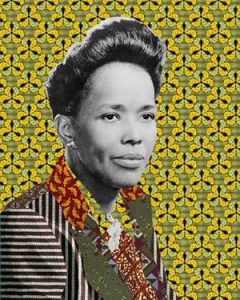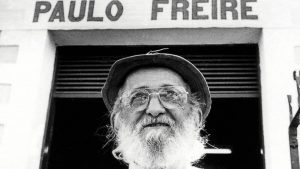Considering Baker and Freirean Priciples of Organizing: Education to Empower Organizers and Leaders
Introduction
Ella Baker, human and civil rights activist of the 20th century, once said: “Strong people don’t need strong leaders…People have to be made to understand that they cannot look for salvation anywhere but to themselves” (Mueller, 2004, 83). Herein lies a fundamental principle of community organizing: the importance of education as a tool for creating empowered leaders, organizers, and ultimately effective community change makers.
In this section of the website, I will discuss the principles of organizing of Ella Baker and Paulo Freire, who demonstrate that education can be a useful tool for inspiring and fostering community leadership.
Ella Baker and Brazilian educator Paulo Freire are two organizers who championed education as a means to create focused, effective leadership within a community. Both emphasized organizers as facilitators of education, thus enabling a community to have grassroots leadership that generates solutions to community issues from within. A community experiences evolution and change when its members have access to educational tools that expose them to systems of injustice and oppression unfolding around them. For both Freire and Baker, educational tools to fight these constellations of power are ultimately the catalyst of effective community organizing and eventual change. Education as a means to foster community leaders and organizers is a central link between organizing and education, and this link helps us understand how to tackle issues within our own communities today.
Understanding Baker

Black Prism
A Baker model of organizing is one in which the organizer plays a fundamental role as a community insider (in other words, someone with history and experiences within a community). In her framework, effective solutions to community issues come not from external sources, but from individual members within a community mobilizing their fellow community members to enact lasting change. As Baker stated: “On what basis do you seek to organize people? Do you start to try to organize them on the fact of what you think, or what they are first interested in? You start where the people are” (Mueller, 2004 84).
Understanding Freire
Paulo Freire’s concept of the role of education in organizing echoes Ella Baker’s model—he believed in the significance of education in order to inspire and empower community organizers. To Freire, organizers are community insiders and teammates on the journey to a shared education about the issues impacting a community. An organizer is an insider facilitating the community’s realization of shared struggles, goals, and ultimately, paths to liberation. For Freire, liberation lies in community members educating one another together, and becoming empowered to spark change within the group.
What Can We Learn From Them?

Act Build Change
Freire’s outlook mirrors Ella Baker’s belief that when community members become conscious and educated about the problems surrounding them, more leaders and change makers are formed. Baker believed education, and subsequent involvement in community decision making, is a fundamental right of the people. Taken in tandem, Baker and Freire’s writings reveal the undeniable significance of education as a medium for inspiring empowered leaders. In this way, communities can realize their paths to liberation together. Even though all who become educated may not necessarily become organizers, education is a central tool for empowering and ultimately enabling change makers.
